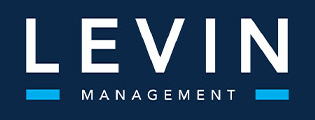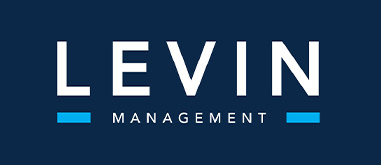Annual Poll Tracks Real-Time Store Manager Sentiment and Tech Trends
The first half of 2022 continued the positive pace set for the retail industry through 2021, with Levin Management Corporation’s (LMC’s) Mid-Year Retail Sentiment Survey backing this trending with store managers reporting healthy sales and traffic. At the same time, the commercial real estate service provider’s annual poll results, released today, indicate a moderation in expectations for the coming months.
Nearly 75% of LMC survey respondents reported sales levels at or above last year’s mid-year total, well above the decade-old survey’s historic average of 59% (2012-2019; this question was not asked in 2020-2021). Notably, nearly 71% say shopper traffic volume is at the same or a higher level year over year, marking the second-highest percentage for this performance indicator in the survey’s history.
“The strong sales results are no surprise, mirroring anecdotal accounts from tenants within our management portfolio as well as reports from industry sources,” noted LMC’s Matthew K. Harding, chief executive officer. As an example, Mastercard Spending Pulse tracked a year-over-year rise of 13.4% for in-store sales through May and a 13.7% climb compared to pre-pandemic levels in May 2019.
“The traffic figures reflect the reality that people like to shop in stores, and they are doing so,” Harding added. “And where during the pandemic store visits tended to be strategic and driven by purpose, shoppers today may be making more frequent trips because they enjoy the experience.” A JLL research report showed U.S. shopping center traffic in April only slightly (3.1%) below its pre-pandemic level.
HEADWINDS OF CHANGE
LMC asked survey participants whether economic shifts during the first half of the year have impacted their performance outlook for the balance of 2022. Nearly 58% replied “yes,” while almost 27% replied “I’m not sure.”
“Adjusted expectations and uncertainties abound, for retail and the entire business community,” Harding said. “Still, this industry is enjoying healthy momentum, though we do anticipate – and may already be seeing – a slight cooling off on spending as consumers react to inflation, higher interest rates and other socio-economic factors.” The latest U.S. Census Bureau retail sales report for May shows a year over year gain of 8.1%, though a decrease of 0.3% from April to May (following a 0.7% increase from March to April).
LMC survey participants are also feeling the pressure. Almost 61% said they have raised or anticipate raising prices in response to inflation. This figure is up from approximately 54% in LMC’s 2022 Outlook Survey, conducted in January.
The Mid-Year survey also touched on another well-documented pain-point for the industry: staffing shortages. Over 70% of respondents say they are actively hiring, with nearly 59% of that cohort reporting it is harder to find qualified job candidates than in the past. And while this figure is down about 20 percentage points from LMC’s 2021 Mid-Year survey, Harding noted the drop likely reflects the longevity of the issue rather than a turn in the right direction. The Department of Labor reported 1.1 million retail job openings in May, which compares to a historic peak of more than 1.3 million last summer.
LEVERAGING TECHNOLOGY
LMC’s Mid-Year poll traditionally incorporates a focus on evolving technologies and the resulting opportunities for retailers. Notable takeaways for 2022 include:
- Nearly three quarters (72.6%) of respondents offer an online option for purchasing goods, scheduling appointments or placing orders for pick-up. Over five years, this figure has grown steadily, up from approximately 50% in 2017.
- About two-thirds (66.3%) are actively employing technology to analyze customer and/or sales data for the purpose of merchandising, creating services/menu options, planning in-location events or creating individualized special offers.
- Retail tenants are using a variety of technology-centered tools in-location for customer service/convenience. The most popular include:
- Digital coupons, discounts and/or loyalty points (64.5%)
- Electronic receipts (49.7%)
- Free Wi-Fi (48.4%)
- In-store, online ordering with free shipping for out-of-stock items (47.7%)
- For companies employing technology-centered marketing, the three most-used tools are:
- Social media (79.8%), with two platforms far outranking the competition:
- Facebook (89.7%)
- Instagram (73.5%)
- Email (78.6%)
- Text messaging (49.4%)
- Social media (79.8%), with two platforms far outranking the competition:
- More than half (52.2%) of those active with social media are enhancing their presence with paid options like Facebook/Instagram sponsored content or ads.
“While retailers today are faced with so many issues beyond their control, they are intently focused on what they can do, and that’s moving the needle on customer service and convenience,” said Melissa Sievwright, LMC’s vice president of marketing. “Technology is such a big part of that, and it is encouraging to see the depth and breadth of how our tenants are leveraging the resulting opportunities.”
Of particular interest is the ongoing merger of brick-and-mortar and ecommerce operations, Sievwright noted. “Much of the pivoting we have seen, including the growing emphasis on online fulfillment options, responds to changing consumer preferences,” she said. “At the same time, these changes are a balm to retailers’ logistics challenges as well. More and more, retail stores are becoming mini distribution hubs for online order pickups and returns. That translates to big savings in the face of skyrocketing shipping costs.”
For seven decades, LMC has served as a trusted single-source commercial real estate services provider for institutional and private owners. The firm’s next Retail Sentiment surveys, which poll retail store managers in the firm’s 125-property, 16 million-square-foot leasing and management portfolio, will be conducted in October/November, gauging expectations and plans for the holiday season, and in January, exploring outlooks for the coming year. The award-winning polls reflect the firm’s commitment to understanding issues and trends impacting retailers from a street-level perspective.

